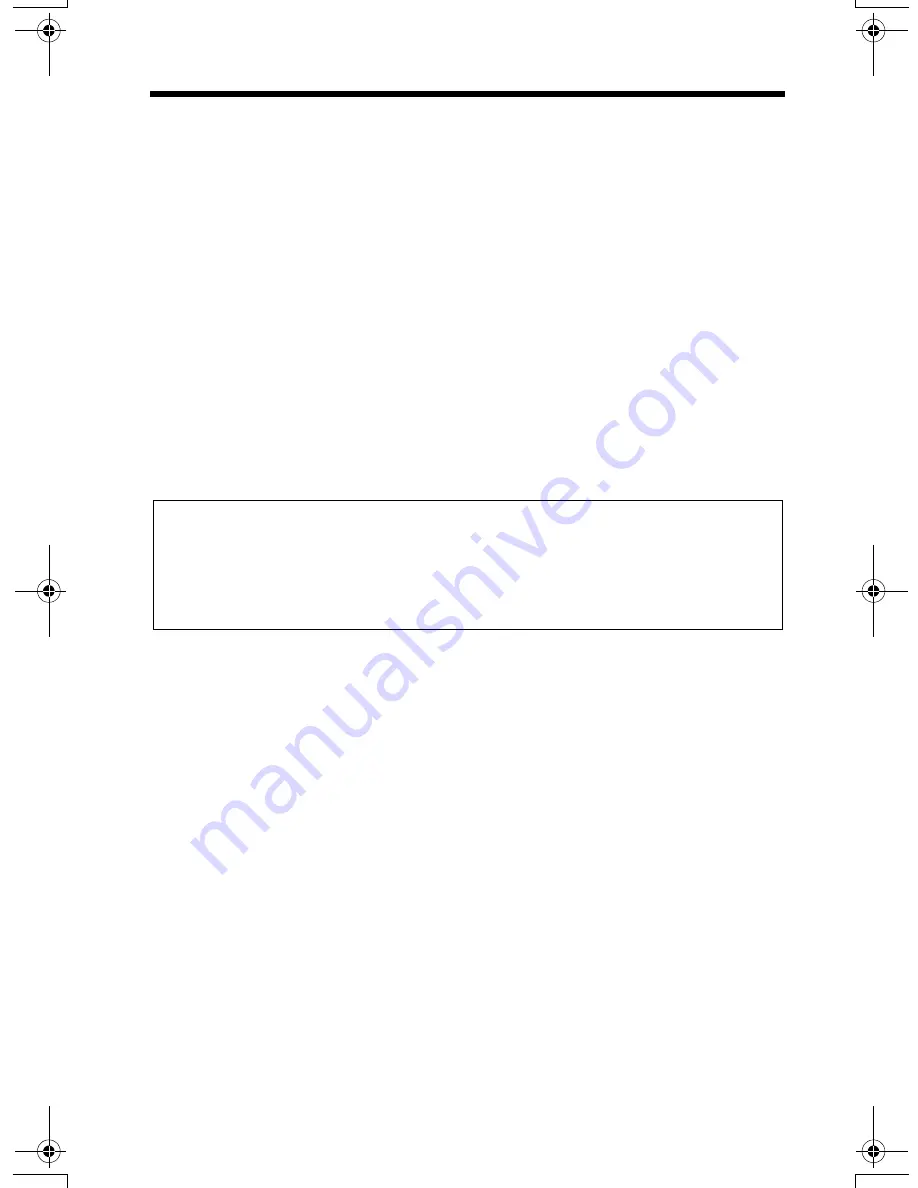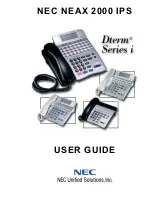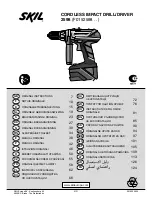
FCC and Other Information
102
Some cordless telephones operate at frequencies that may cause interference to
nearby TVs and VCRs. To minimize or prevent such interference, the base of the
cordless telephone should not be placed near or on top of a TV or VCR. If
interference is experienced, move the cordless telephone further away from the TV
or VCR. This will often reduce, or eliminate, interference.
Operating near 5.8 GHz electrical appliances may cause interference. Move away
from the electrical appliances.
FCC RF Exposure Warning:
This product complies with FCC radiation exposure limits set forth for an
uncontrolled environment. To comply with FCC RF exposure requirements the base
unit must be installed and operated with its antenna located 20 cm or more between
antenna and all person’s body (excluding extremities of hands, wrist and feet). The
handset unit may be carried and operated with only the specific provided belt-clip.
Other non-tested belt-clips or similar body-worn accessories may not comply and
must be avoided. The base and handset units must not be co-located or operated in
conjunction with any other antenna or transmitter.
This equipment is hearing aid compatible as defined by the FCC in 47 CFR Section
68.316.
A TIA/EIA-IS-968 compliant telephone cord and modular plug is provided with this
equipment. This equipment is designed to be connected to the telephone network
or premises wiring using a compatible modular jack that is also TIA/EIA-IS-968
compliant.
• Environment
— do not place the unit in a room where the temperature is less
than 5°C (41°F) or greater than 40°C (104°F). Allow 10 cm (4”) clearance around
the unit for proper ventilation. Avoid excessive smoke, dust, mechanical vibration,
shock, or direct sunlight.
• Medical
— consult the manufacturer of any personal medical devices, such as
pacemakers or hearing aids, to determine if they are adequately shielded from
external RF (radio frequency) energy. (The unit operates in the frequency range of
5760MHz to 5840MHz, and the power output level can range from 0.25 watts to
0.5 watts.) Do not use the unit in health care facilities if any regulations posted in
the area instruct you not to do so. Hospitals or health care facilities may be using
equipment that could be sensitive to external RF (radio frequency) energy.
• Routine care
— wipe the unit with a soft cloth. Do not use benzine, thinner, or any
abrasive powder. When you leave the unit unused for a long period of time, unplug
the AC adaptor from the outlet.
• If there is any trouble
— disconnect the unit from the telephone line and connect
a known working phone. If the known working phone operates properly, have your
unit repaired by one of the authorized Panasonic Factory Service Centers. If the
known working phone does not operate properly, consult your telephone
company.
When you hold the phone to your ear, noise might be heard in your Hearing Aid.
Some Hearing Aids are not adequately shielded from external RF (radio frequency)
energy. If noise occurs, use an optional headset accessory or the speakerphone
option (if applicable) when using this phone. Consult your audiologist or Hearing
Aid manufacturer about the availability of Hearing Aids which provide adequate
shielding to RF energy commonly emitted by digital devices.
TG6500.book Page 102 Friday, June 25, 2004 6:56 PM







































